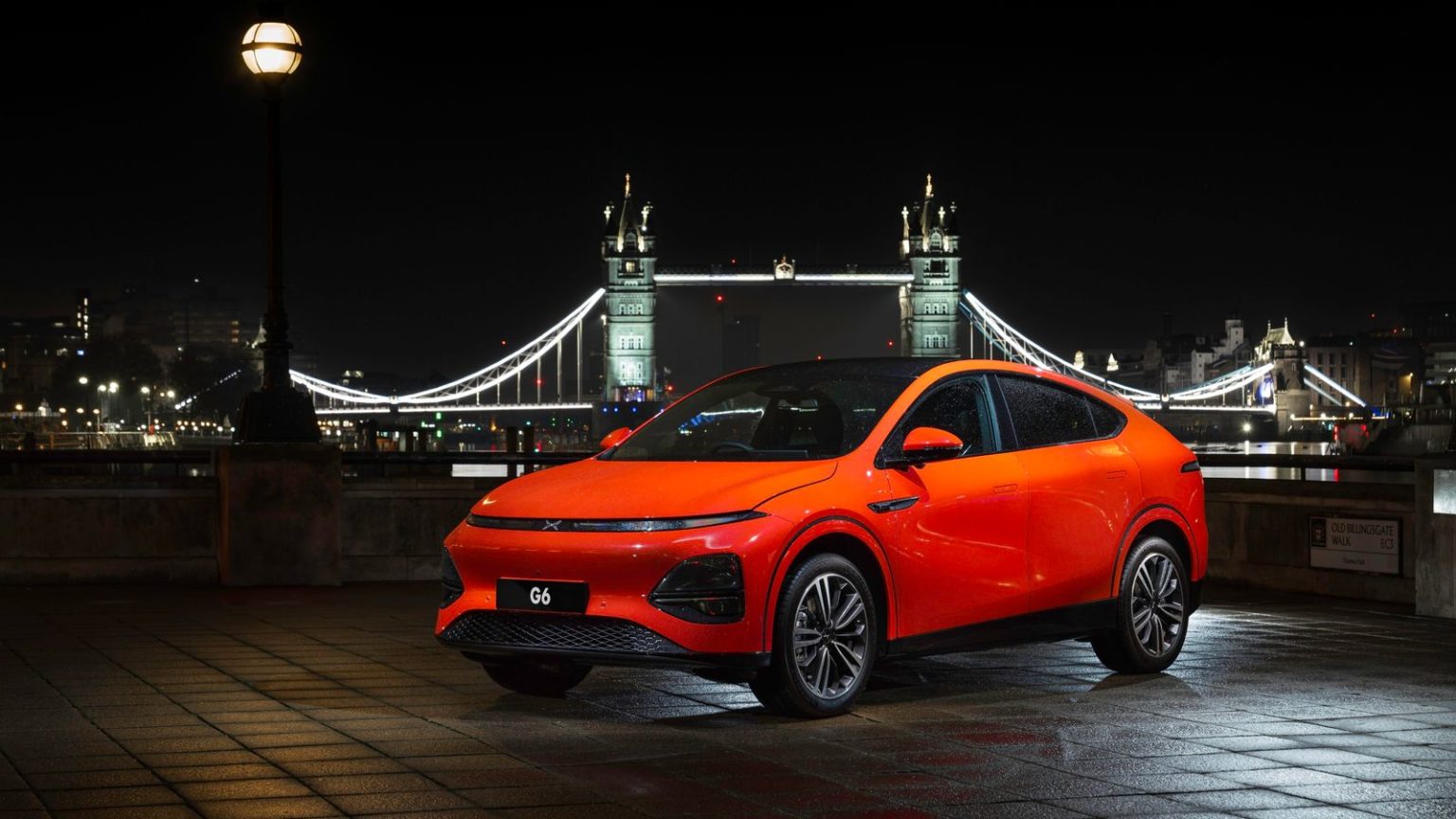A Big Opportunity: How the UK is Becoming a Key Market for Chinese EV Manufacturers
The UK’s growing enthusiasm for electric vehicles (EVs) and its unique position outside the EU trading bloc have created a significant opportunity for Chinese EV manufacturers, according to Dr. Brian Gu, the president of XPENG Motors. As one of China’s newest and most ambitious EV companies, XPENG has recently entered the UK market with its latest model, the G6, a premium medium-sized SUV coupe. With its competitive pricing, innovative technology, and tariff-free access, the UK is emerging as a critical part of XPENG’s European expansion strategy. This move highlights the broader trend of Chinese EV brands eyeing the UK as a strategic foothold in Europe.
Why the UK? Strategic Opportunities for Chinese EV Manufacturers
The UK offers a perfect storm of opportunities for Chinese EV manufacturers like XPENG. British consumers have shown a strong embrace of electric vehicles, with EVs making up just over 19% of new car registrations last year. While this figure is still below the government’s target of 22% for domestic manufacturers, it reflects a market in rapid growth. Additionally, the UK’s decision to phase out new petrol and diesel vehicles by 2030 has created a sense of urgency among consumers and manufacturers alike. For XPENG, the absence of tariffs on Chinese-made EVs in the UK, unlike in the EU, makes the market even more attractive. This tariff-free access allows Chinese brands to offer high-quality, cutting-edge vehicles at competitive prices, giving them a distinct advantage in the premium EV sector.
The Contender: G6 Aims to Challenge Tesla’s Model Y
XPENG’s latest offering, the G6, is a direct challenger to Tesla’s Model Y, one of the most popular EVs on the market. The G6 is positioned as a premium medium-sized SUV coupe, blending sleek design, advanced technology, and affordability. Priced at just under £40,000, the G6 is approximately £7,000 cheaper than Tesla’s Model Y, making it an attractive option for budget-conscious consumers who still want a high-quality EV. While XPENG is a relative newcomer to the global EV market—it has only been producing cars since 2016—the company has already made waves with its innovative approach to electric vehicle design and technology. The G6’s launch in the UK this month marks a significant milestone in XPENG’s global expansion efforts.
Navigating the Market: Opportunities and Challenges for XPENG
Despite the optimism, XPENG faces both opportunities and challenges as it enters the UK market. On the one hand, the company is well-positioned to capitalize on the UK’s growing EV market and tariff-free environment. On the other hand, the UK EV market is not without its hurdles. The Society of Motor Manufacturers and Traders (SMMT) has warned that consumer demand for EVs is slowing, citing the need for state-funded incentives to keep the market growing. However, Dr. Gu remains confident, dismissing concerns about sluggish demand and emphasizing the UK’s “strategic importance” for XPENG’s growth.
Addressing Concerns: Tariffs, Dumping, and Security Risks
One of the key concerns surrounding the influx of Chinese EVs into the UK is the potential for “dumping,” or flooding the market with cheap vehicles to undermine local manufacturers. The EU has already imposed tariffs of up to 35% on Chinese-made EVs, including Tesla, in response to Beijing’s generous subsidies to the EV industry. However, the UK’s tariff-free environment has raised fears that manufacturers like XPENG, BYD, Geely, and SAIC (owner of the MG brand) could exploit this loophole. Dr. Gu has categorically denied any allegations of dumping, stating that XPENG’s focus is on quality, not quantity. He also called for the EU to drop its tariffs, arguing that reducing trade barriers would allow the UK market to benefit from the best products from around the world.
Building Trust: Data Privacy and Compliance in the Digital Age
Another major concern surrounding the rise of Chinese EVs in the UK is the potential security risk posed by the adoption of Chinese-owned technology. Communications company Huawei was banned from UK networks over fears that Beijing could demand data from its companies, and similar concerns have been raised about Chinese EVs storing British drivers’ data. Dr. Gu has sought to allay these concerns, emphasizing that XPENG adheres to the most stringent data and privacy rules in every market it operates in. “We put privacy and data security as the utmost focus for our business,” he said. While he did not directly address whether XPENG could resist a demand for data from the Chinese government, he reiterated the company’s commitment to protecting its customers. For XPENG, building trust will be key to establishing itself as a leading global EV brand.
In conclusion, XPENG Motors sees the UK as a cornerstone of its European expansion strategy, leveraging the country’s growing EV market, tariff-free environment, and openness to new technologies. While challenges remain, from slowing consumer demand to concerns about data security, Dr. Gu remains confident that XPENG’s focus on quality, innovation, and customer trust will drive its success in the UK and beyond.















